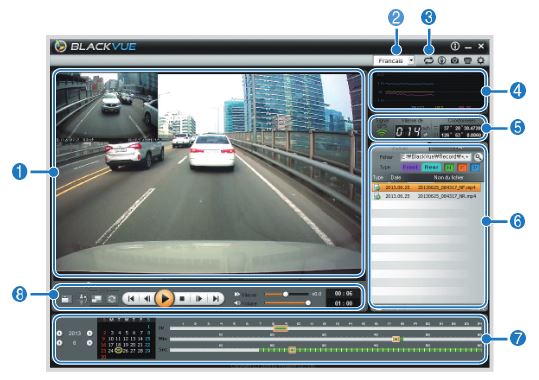
Please contact OGS at the following address for additional help regarding State Finance Law §§139-j and 139-k. Who can I talk to or contact if I need help? (Last Updated: )Ī: The Advisory Council has designated the New York State Office of General Services (“OGS”) to serve as its secretariat and staff.
#3dxi pc viewer registration#
Accordingly, questions regarding the registration and operation of the Lobbying Act should be directed to the Commission.Ģ.1.

#3dxi pc viewer full#
It should be noted that while the Advisory Council is charged with the responsibility of providing advice to the Commission regarding procurement lobbying, the Commission retains full responsibility for the interpretation, administration and enforcement of the Lobbying Act (see Legislative Law §1-t (c) and §1-t (d). It is strongly recommended that the reader develop a working understanding of these defined terms.

For the reader’s convenience, these defined terms are identified through the use of initial capital letters. State Finance Law §§ 139-j and 139-k establish defined terms that are critical to the understanding of the Law. The reader is urged to periodically review these materials to determine if additional materials have been posted that may be relevant to its procurement related activities. In addition, these Frequently Asked Questions (“FAQs”) have been developed as model guidelines with the intent that they will be revised, updated and supplemented, as appropriate. These documents are available on the Advisory Council’s website at: (Click on Model Forms and Language on the left side of the page). In an effort to facilitate compliance by governmental entities, the Advisory Council has prepared model forms and language that can be used to meet the obligations imposed by State Finance Law §§ 139-j and 139-k. The Advisory Council on Procurement Lobbying (the “Advisory Council”) is authorized to establish model guidelines regarding the restrictions on contacts during the procurement process for use by governmental entities (see Legislative Law §1-t (e) and State Finance Law §139-j). Primarily, the Law regulates two related aspects of procurements: (i) activities by the business and lobbying community seeking procurement contracts (through amendments to the Legislative Law) and (ii) activities involving governmental entities establishing procurement contracts (through amendments to the State Finance Law).

expands the definition of lobbying to include attempts to influence gubernatorial or local Executive Orders, Tribal–State Agreements, and procurement contracts.requires the timely disclosure of accurate and complete information from offerers with respect to determinations of non-responsibility and debarment.directs the Office of General Services to disclose and maintain a list of non-responsible bidders pursuant to the Law and those who have been debarred and publish such list on its website.authorizes the NYS Joint Commission on Public Ethics (f/k/a New York State Commission on Public Integrity) (the “Commission”) to impose fines and penalties against persons/organizations engaging in impermissible contacts about a governmental procurement and provides for the debarment of repeat violators.requires governmental entities to designate persons knowledgeable about the procurement, who generally may be the only staff contacted relative to the governmental procurement in a restricted period.requires the above mentioned governmental entities to record all contacts made by lobbyists and contractors about a governmental procurement to establish a record regarding who is contacting governmental entities about procurements.makes the Lobbying Act applicable to attempts to influence procurement contracts once the procurement process has been commenced by a state agency, unified court system, state legislature, public authority, certain industrial development agencies and local benefit corporations.The Law was subsequently modified in 2005, 2006, 2007, 20. The Law regulates attempts to influence state and local Governmental Entity procurement contracts in order to increase transparency and accountability in New York State’s procurement process. Pataki as Chapters 1 and 596 of the Laws of 2005. Replaces previously released version in its entiretyĬhapter 1 of the Laws of 2005 (the “Law”), which amended the Legislative Law (the “Lobbying Act”) and the State Finance Law, was enacted on Augby Governor George E.


 0 kommentar(er)
0 kommentar(er)
